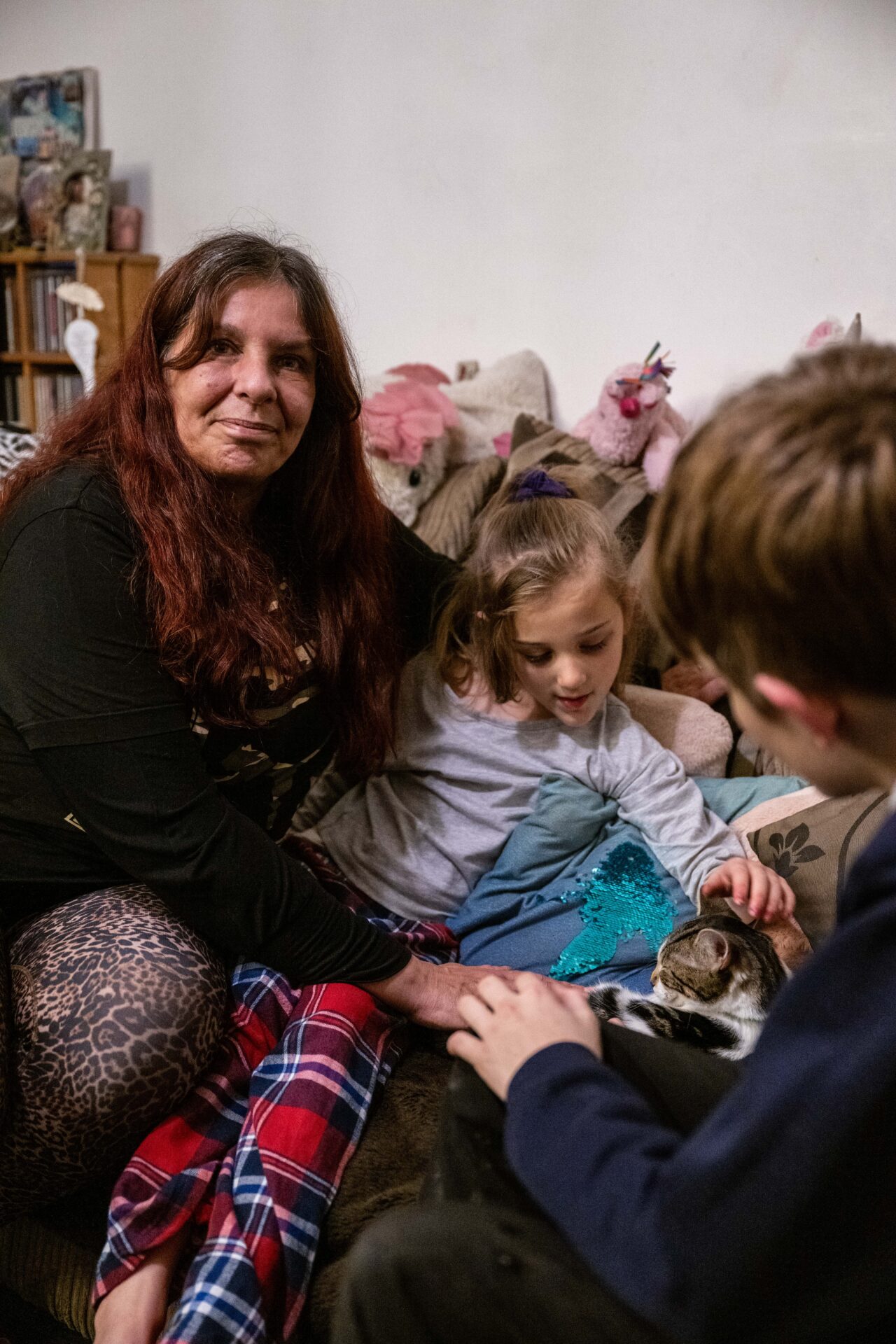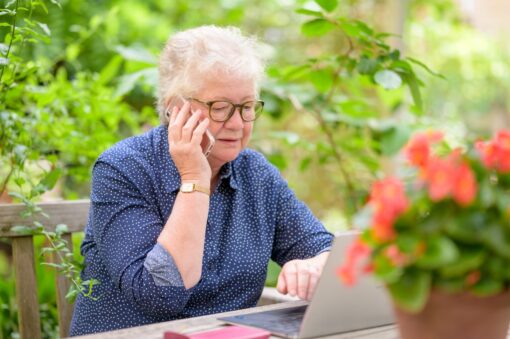
Published ahead of Kinship Care Week 2025, Handle With Care shares key findings from our 2025 annual survey of more than 1,900 kinship carers to provide an updated ‘state of the nation’ overview of kinship families and the current policy context.
National services providing training and support for kinship carers and a new kinship local offer requirement are driving forward improvements.
Good progress
Click on the link below to take you to the section you'd like to read:
The Children’s Wellbeing and Schools Bill, currently progressing through Parliament, includes a new legal duty on local authorities to publish a kinship local offer, strengthening the requirement introduced in kinship care statutory guidance published in October 2024. This replaces the previous requirement to publish a family and friends care policy in place since 2011.
In 2025, around 1 in 8 (13%) of kinship carers told us they had seen their local authority’s kinship local offer, and a further 11% said they didn’t know. Although this is far too low, local authorities will be continuing to respond to the new requirement ahead of the legal duty, and there is some evidence of improving awareness: only 7% of kinship carers in 2023 said they had seen their local authority’s family and friends care policy and a further 29% said they didn’t know this existed.
There are some positive signals that kinship carers’ experiences with local authority support and information are improving, albeit from a low base. Our annual surveys show that kinship carers in 2025 were 8pp more likely to rate of support received by their local authority as excellent or good (20%) than in 2023, and 9pp less likely to rate the information provided by their local authority about kinship care as poor or very poor (46%) over the same time period.
Kinship is continuing to deliver a national training and support service for all kinship carers, funded by the Department for Education until at least March 2026. This includes a series of online and in-person training and events designed to provide free advice, tips and practical tools. The Department for Education also funds Kinship to deliver the national peer support service, offering kinship carers a way to meet other kinship carers, share experiences and build communities.
In Stable Homes, Built on Love, the previous government committed to investing in the delivery of a national offer of support and training for all kinship carers. This followed a recommendation from the Independent Review of Children’s Social Care that all local authorities should develop peer support and training for all kinship carers. After a competitive tender process, Kinship was awarded a contract by the Department for Education to develop an information, training and support programme for all kinship carers in England from April 2024.
The National Kinship Care Strategy also celebrated Kinship’s work to establish more than 145 peer support groups across England and the role of the groups in building community and relationships for kinship carers. Funding has been awarded to Kinship to continue building and strengthening peer support groups until at least March 2026.
We’re pleased to see a new legal duty placed on local authorities in the Children’s Wellbeing and Schools Bill to deliver a kinship local offer, strengthening the reframed requirement in statutory guidance. We had consistently called on the government to reinforce the requirement for local authorities to provide visible, accessible and up-to-date information for kinship carers on the support available to them. This is crucial given that just under half of kinship carers continue to rate the information provided about kinship care by their local authority as poor or very poor.
However, as outlined by Kinship’s Associate Director of Policy and Public Affairs when providing oral evidence to the Education Committee in February 2025, the local offer’s impact will also be to magnify the lack of support available to kinship families, particularly those with informal arrangements or where a legal order was made in private proceedings.
The kinship local offer is being introduced in a very different context to that of other local offers for children with SEND or for care leavers, where there are more well-established systems of both statutory and wider support to signpost kinship carers to. It’s vital that the government and local authorities improve the level of financial, practical and emotional support available to kinship families alongside developing their local offers as otherwise, “there isn’t a huge amount of point signposting to support which doesn’t exist”.
A lack of independent advice, especially at the point of becoming a kinship carer, can leave kinship carers vulnerable to being exploited and unsure about the best option for them to pursue to support their new family. The Local Government and Social Care Ombudsman has highlighted previously how special guardians were sometimes given incorrect advice and information by their local authorities. As highlighted by Foundations in their survey of local authority support, “kinship carers may commit to care arrangements that limit their access to support without being aware of these implications”.
The previous government’s commitment to invest in a national offer of training and (peer) support services for kinship carers reflected a significant win for our #ValueOurLove campaign, which continues to call for equalised access to high-quality training and support between kinship carers and foster carers. Delivery of a national offer of training, advice and information is helping to deliver consistent and high-quality support for kinship carers of all types. This is crucial as only 2 in 10 kinship carers told us in our 2022 annual survey that they’d received any preparation support before or shortly after their child moved in.
It is vital that the government continues to invest in independent services which provide information, training and support to kinship carers. They are providing a lifeline to many kinship carers – including those with informal arrangements – who are otherwise isolated and struggling without the information and support they need.
All local authorities should ensure they provide up-to-date, accessible and visible information about the support available to kinship families of all types through their kinship local offers and elsewhere. This should include signposting to support from Kinship, including our national offer of training and support and Kinship Compass – our tool to help kinship carers discover the support available to them locally, including support groups, events and workshops, free legal clinics and food banks.
Local authorities should work at pace to develop and improve their kinship local offers and work alongside kinship carers to do so. They should recognise the diversity of kinship families and the need for some services to be attuned to specific cohorts (e.g. young kinship carers or those from minoritised communities). Through our Professionals’ Network and local offer insights group, we are working with several local authorities to support them in co-producing their kinship local offers alongside local kinship families.
All kinship carers should be offered free and independent advice from the moment they are considering becoming kinship carers and throughout their journey. This should include guidance on the different kinship care arrangements and their implications for access to support, and ensure kinship carers receive the welfare benefits they are entitled to given their particular family arrangements.
1 in 8 had seen their local authority’s kinship local offer
20% rated the support from their local authority as excellent or good, up from 12% in 2023
2,374 calls answered by our Kinship Advice Team
126 free workshops delivered to 973 kinship carers

Independent information, support and advice for you. Because, we know kinship care is complex and confusing. Use Kinship Compass to discover what support is available to you, both locally and nationally, to help you navigate your kinship journey.
View In your area
Published ahead of Kinship Care Week 2025, Handle With Care shares key findings from our 2025 annual survey of more than 1,900 kinship carers to provide an updated ‘state of the nation’ overview of kinship families and the current policy context.

Whether you're new to kinship care, already caring for a child or supporting a family member or friend, we’re here to help. Find out more about the support and advice we can offer.
View Support and advice